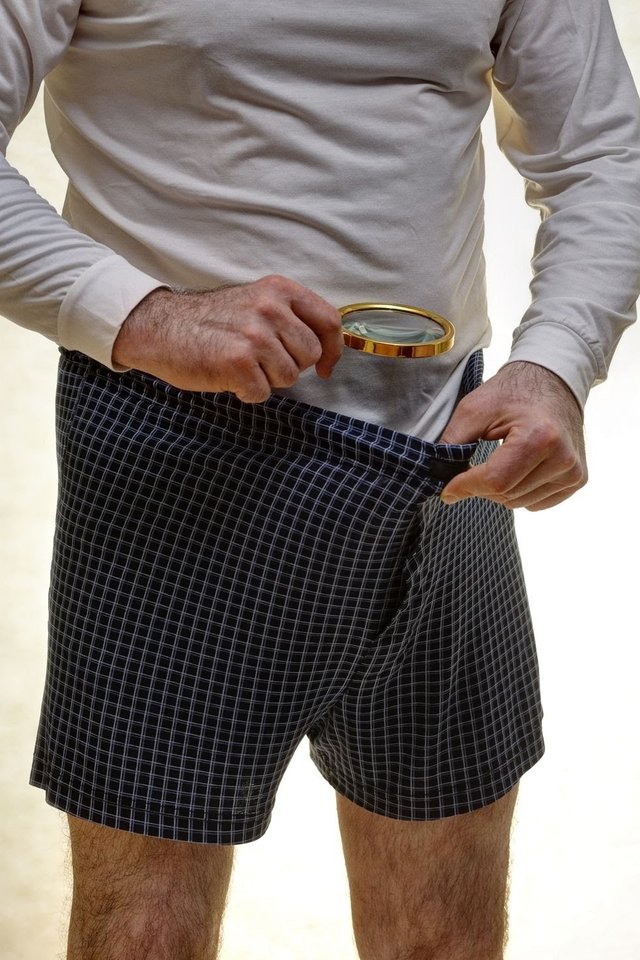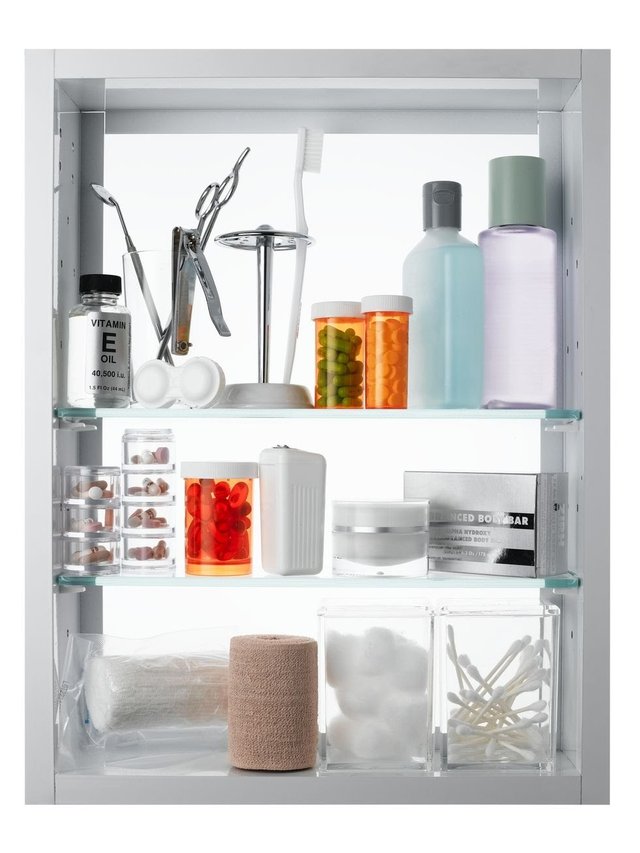7 Health Tips That Can Save a Man's Life

Consider this your expert manual to what's going on in those testosterone-fueled minds and bodies, so you can help keep your guy healthy — and pick up a few tricks for yourself, too.
1
HE REALLY IS THAT SICK

"Women are always baffled by how much men whine when they're sick, while we soldier on. But this isn't him being dramatic. Men's bodies aren't built to ward off viruses in the same way ours can. My colleagues and I found that the hormone estrogen stops the replication of the flu virus when it's injected into the nasal cells of a woman who's been exposed, making her less likely to get sick or spread the virus. Meanwhile, testosterone weakens men's immune systems. Data also show that once men get sick, it takes them longer to get over a bug. So I tell my friends to make their guys wash their hands often. Studies have shown that men are significantly less likely to do it, and avoiding getting sick in the first place is their best bet." —Sabra Klein, Ph.D., associate professor of molecular microbiology and immunology at Johns Hopkins Bloomberg School of Public Health in Baltimore
2
KEEP AN EYE DOWN THERE

"The women I know are constantly worried about their partner's health, and I tell them that the single best indicator that he's doing okay is a morning erection. He should get one on a regular basis, when he wakes up or just before. In healthy men, this happens during periods of REM sleep because blood flow is increased and testosterone levels are at the highest point of the day. That erection is a sign that the vascular, hormonal, neurological, and psychological systems are all working. When they become less frequent, trouble is brewing. In fact, he may be developing heart disease: When plaque starts to build up in the arteries, it often clogs up the tiny veins in the penis first. If a guy gets an erection five or six mornings a week, I'd sell him a life insurance policy. If not, I would tell him to make an appointment for a physical, stat." —Steven Lamm, M.D., medical director of the Tisch Center for Men's Health at NYU Langone Medical Center in New York City
3
FIND HIM A FEMALE DOCTOR

"Men die, on average, five years earlier than women, and a big factor is their underutilization of health care. My own father refused to see a doctor when he started to lose feeling in his face and arm. Then he had a stroke. Our research shows that men, even young ones, who have traditional beliefs about masculinity — that they need to be tough, brave, self-reliant, and never emotional — are more likely to ignore their symptoms. It's a real problem. Men overwhelmingly prefer to see male doctors; they consider them more qualified. But they're more likely to be honest with a woman, especially if something's wrong. They don't want to appear vulnerable in front of other men. So I tell my friends, get your husband to a female doctor if you can. It could save his life." —Diana Sanchez, Ph.D., associate professor of psychology at Rutgers University in New Brunswick, NJ
4
MOST MEDS WERE DESIGNED FOR THEM, NOT FOR YOU

"Scientists know much more about men than they do about women. Women's fluctuating hormones make it difficult to get accurate comparisons during research, so we've often just been left out! That means many of the medications on the market have only been tested on men. Therefore, it's no surprise when a friend complains that a prescription is making her miserable. We do know that women's livers don't metabolize medication as quickly as men's, and the longer it lingers in your system, the greater your chances of adverse side effects. Not long ago, a friend said she wanted to stop taking an antibiotic because it was upsetting her stomach, but I advised against it: If she didn't finish the prescription, the infection might come back even more resistant to medication. I told her to talk to her doctor about trying a lower dose, and next time, ask from the get-go if the prescription has been tested on women. If not, there's almost always an alternative." —Sabra Klein, Ph.D.
5
HIS CLOCK IS TICKING TOO

"Men can remain fertile for decades longer than women, but half of couples suffering from infertility will find that the problem rests at least in part with the guy, often because sperm quality starts declining around age 40. However, infertility can sometimes be easily solved in men. A friend came to me recently because he and his wife were having trouble conceiving, and when they tested his sperm, they found some issues with shape and motility. Their doctor had suggested in vitro, but I told him to hold off, because problems like his can sometimes be fixed without spending thousands. Many men have varicocele (essentially, varicose veins in the testicles that can impair sperm production), which is easily corrected. So I tell couples who are trying to conceive to visit a clinic with a male fertility specialist on staff—it can make a big difference." —Peter Stahl, M.D., assistant professor of urology at Columbia University Medical Center in New York City
6
SIT LIKE GUYS DO

"Men get a lot of flak for manspreading — taking up too much room on the seats of trains or buses — but from an orthopedic standpoint, it's smart. Don't get me wrong, I don't advocate taking up so much space! But in general, guys don't cross their legs or clamp them together in the ladylike fashion we've been taught. Those habits can spell real trouble, even for young women. I see patients constantly who complain of hip and knee pain, often because, over time, their knee has moved out of alignment. This can cause it to crunch or hurt when you climb stairs, and develop into hip bursitis, which is pain along the outside of the hip. Anytime I see a friend sitting with her legs together, I urge her to put both feet flat on the floor and spread her legs slightly so they're in the 11 o'clock and 1 o'clock positions. Watching the way you stand will help too: You never see a man with his hip cocked (as if you were holding a baby on your side), yet women do it all the time. Instead, stand with your hips aligned and your legs spread slightly." —Barbara Bergin, M.D., a board-certified orthopedic surgeon and author of the forthcoming book Sit Like a Man
7
LOOK FOR THESE THREE THINGS

"The issues that worry me most are rarely on a man's radar. One is snoring; it's a sign of sleep apnea, which causes oxygen levels to drop, affecting the heart. If your guy snores excessively and his dress shirt neck size is 17.5 or greater, there's a good chance his airflow is being obstructed. Skin cancer is also overlooked. There's been a 150 percent increase in melanoma in men over the last few decades—and they're more likely to die from it. He can't see his back, top of his head, or behind his ears, so watch those spots. My other big worry is this warrior mentality at middle age. Men can be triathletes when they're 20 or 30, but most should scale back after 40 or they'll do serious damage to their knees, hips, and backs. Guys want to remain vital, but I doubt you'd care if he bench-pressed 220, not 280. Make sure he knows that." —Steven Lamm, M.D.
If you are going to post content that you did not write, you need to include the source and put it in your own words.
Source: http://www.redbookmag.com/body/health-fitness/tips/g3571/health-tips-for-men/
@originalworks
Okay
Corrected. This work does not appear to be original.
Obviously @originalworks is wrong...
Thank you for pointing it out. It will be looked into further for future updates.